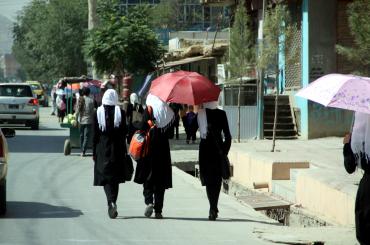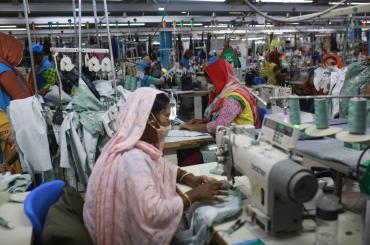
gender equality
-

Economic growth does not guarantee gender equity in work
There are significant disparities across countries in the gender division of work even at similar income levels. Social, institutional, and policy choices play a pivotal role in the variation in gendered labour patterns across countries.
-

Paternalistic gender discrimination: Evidence from labour markets in Bangladesh
Employers can discriminate and restrict women from taking up employment opportunities deemed unsafe. Research from Bangladesh suggests female workers entering the labour market may suffer most from paternalistic discrimination, where male workers ‘pr...
-

The impact of a gender quota on women’s education in Afghanistan
Gender gaps in access to education have persisted in low- and middle-income countries, despite all but closing in high-income countries. Affirmative action for women in public universities in Afghanistan increased the share of women admitted by 32%. ...
-

How promoting women to managers catalyses gender equality at home
Promoting women at work increases female bargaining power in the household, both for new female managers and female staff exposed to them as role models
-

How childcare empowers women
Providing access to childcare can help women achieve greater economic parity and enhance their agency, and could also lead to a substantial boost to the global economy
-

Reshaping gender attitudes: Evidence from schools in India
Integrated school-based interventions to advance gender equality can achieve lasting changes in regressive attitudes and behaviours
-

Reducing rates of child marriage: Experimental evidence from Bangladesh
Why do we still see high rates of child marriage in settings such as Bangladesh, despite significant improvements in women’s economic empowerment?
-

Gender-targeted job adverts: Patterns, impacts, and mechanisms
What are the impacts of job advertisements that are targeted at specific genders?